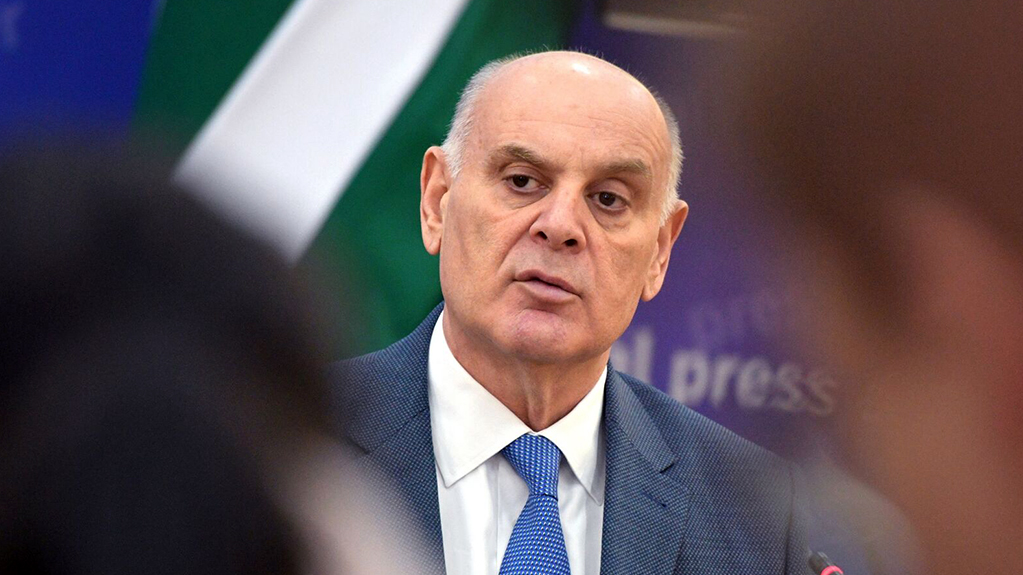As a result of negotiations between representatives of the de facto government of occupied Abkhazia and the opposition, the so-called president, Aslan Bzhania, has decided to resign from his position. The participants of the rally are now leaving the "government buildings." Early presidential elections will be held in the self-proclaimed republic, and until then, Badra Gunba, the so-called vice-president, will assume the duties of the president.
News
"In order to maintain stability and constitutional order in the country, I am resigning from the position of President of the Republic of Abkhazia," said a statement addressed by Bzhania to the de facto chairman of the parliament, Lasha Ashuba. The so-called Parliament is set to discuss the statement today, November 19, during an extraordinary session.
Negotiations between representatives of the so-called government and the opposition began on November 18 and, as Badra Gunba stated, lasted for more than nine hours. The participants of the protest, leaving the buildings of the so-called Parliament, the President's Administration, and the Cabinet of Ministers, became the main conditions for Aslan Bzhania's resignation. As per another clause of the agreement, Badra Gunba will dismiss Alexander Ankvab from the position of the so-called Prime Minister and appoint Valery Bganba in his place.
According to Adgur Ardzinba, the leader of the "People's Movement of Abkhazia," another political crisis is now behind them. He expressed hope that the agreement reached will stabilize the political situation.
"Thanks to everyone for the existence of our Abkhaz spirit. We are a small nation, but once again we have shown the whole world that neither big capital, nor oligarchs, nor any external force can scare us. We will fight for our interests, for the motherland, and every piece of land," Ardzinba told the protesters gathered near the so-called parliament.
Protests in occupied Abkhazia began on Friday, November 15. Representatives of the opposition and their supporters gathered in Sukhumi, near the so-called parliament, demanding the rejection of the "investment agreement" signed with Russia. They occupied the buildings of the de facto Parliament, the President's Administration, and the Cabinet of Ministers. In the midst of the developments, Aslan Bzhania left Sukhumi. On November 16, he stated that the release of the "government buildings" was a condition for his resignation, a demand the protesters did not accept. The representatives of the de facto government assessed the opposition's actions as a "coup d'état."















